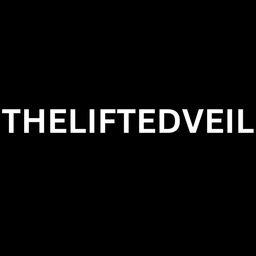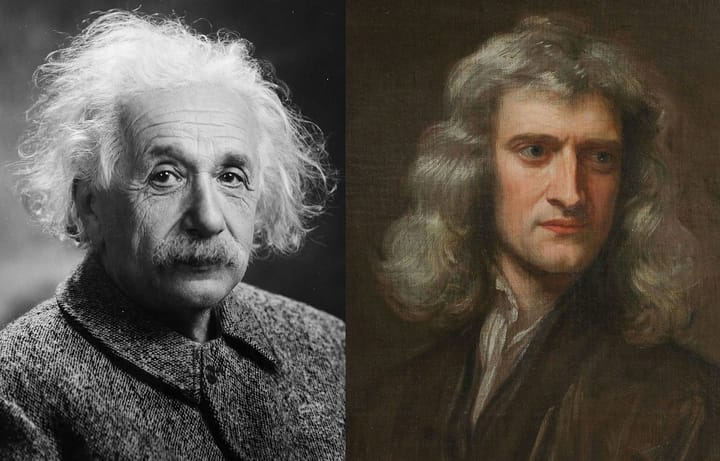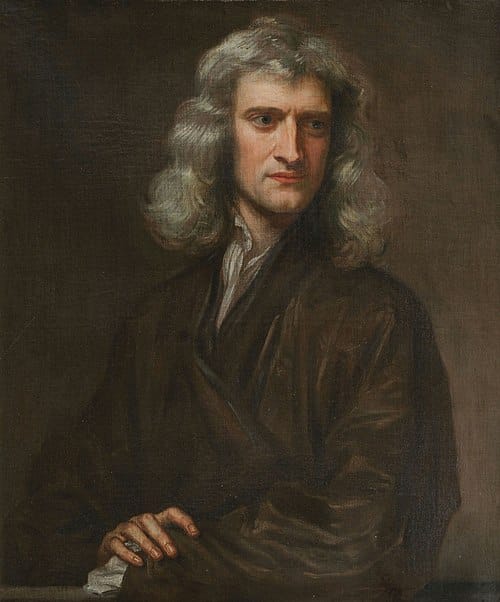Civilization decays as men trade struggle for screens. Sovereignty begins where comfort end, master your mind, or remain a slave to the age.
Across every domain of modern life, one can observe a strange convergence: institutions grow in size yet hollow in function, speech multiplies while meaning erodes, and technological progress accelerates even as the individual becomes more anxious, distracted, and dependent. What once provided orientation: religion, tradition, shared my, has been replaced by a floating mass of slogans, policies, and preferences, none of which claim permanence or offer direction beyond the next cycle of consumption.
What passes for culture no longer transmits values but produces appetites. The rituals that once marked thresholds of maturity have dissolved, leaving adolescence without end and adulthood without form. Social norms are no longer rooted in continuity but in performance, measured by visibility, novelty, and moral compliance. The result is a society where freedom is confused with frictionlessness, and identity is curated rather than earned.
This shift did not begin with politics, and it cannot be explained by surface ideologies. Something deeper has been reversed, something in man’s relation to truth, to time, to suffering, to authority. One no longer asks whether a value is true, but whether it is inclusive, acceptable, or profitable. What was once instinctive must now be justified. What was once sacred must now be explained.
Most adjust without protest. Some notice but remain silent. A few begin to subtract themselves, piece by piece, from the inertia around them.
This text is written for them.
I. Postmodernism and the Collapse of Meaning
Postmodernism marks a stage where culture no longer holds a clear sense of direction or shared values. Without belief in higher goals or enduring truths, society fractures into competing fragments, each chasing its own fleeting interests. Meaning dissolves into skepticism and endless debate. Nothing commands loyalty or sacrifice anymore.
When higher purpose disappears, materialism and hedonism surge as default responses to a growing existential emptiness. People seek distraction in status, comfort, and pleasure because the weight of meaning has been lifted.
Pleasure becomes a stand-in for purpose, while real challenge and effort grow unwelcome. The discipline required for growth slips away as the easy pull of novelty and comfort dominates attention and energy. The body and mind grow accustomed to softening, craving relief rather than forging strength.
A culture stripped of soul breeds passivity beneath a thin veneer of stimulation. Anxiety and restlessness hide behind constant consumption and surface-level thrills. The cycle of escape creates dependence on distraction and weakens the capacity for true will.
This collapse is not accidental. It follows naturally when a society abandons collective values and higher aims. Morality frays, social bonds weaken, and individuals lose the framework needed to navigate hardship or meaning. The endless chase for comfort masks deeper decay.
Materialism and hedonism emerge as symptoms and accelerants of this breakdown. They are not solutions but distractions, dulling the mind and eroding resolve. The consequence is a culture drifting toward exhaustion and decline, weighed down by empty indulgence.
II. Civilizational Decline: The Last Man
Nietzsche’s Last Man is the ultimate portrait of spiritual collapse disguised as comfort. He is the end result of a culture that has traded courage, struggle, and real meaning for safety, convenience, and easy pleasures. This figure fears discomfort more than failure or death. He avoids anything that requires effort or sacrifice. His life is a slow drift through distraction, boredom, and constant small gratifications. He is not driven by ambition or purpose. Instead, he settles for mediocrity and numbs himself with routine, trivial entertainments, and superficial success.
The Last Man does not challenge fate or himself. He shrinks his world to the smallest safe space and clings to it desperately. This is not some distant or abstract idea. It is the shape of modern man in our hyperconnected, dopamine-flooded era. The endless scroll of social media, the craving for instant approval, the flood of entertainment and consumerism all feed directly into the Last Man’s mindset. Instead of forging character through struggle, modern man fragments his attention and surrenders his power to systems designed to keep him compliant and distracted.
The battles that once gave life meaning, real sacrifice, hard growth, facing fear, have been replaced by dopamine hits and safe diversions. The Last Man is complacent, and that complacency drives the sedation of society. We fear silence, discomfort, and boredom so much that we drown ourselves in noise, screens, and superficial connection. This is the new face of nihilism. A slow death of the will hides behind a mask of pleasure and distraction.
This is not just philosophy. It is a diagnosis of our reality. The biggest threat we face does not come from outside forces but from within. Our own collapse of will and surrender to passive consumption. The political systems, the culture, the media all reflect this inner decay. There is no saving the world without first saving ourselves. That means rejecting the easy comforts, the fake battles, and the shallow distractions. It means reclaiming our minds and our bodies, rebuilding our capacity for patience, discipline, and real engagement with life’s challenges.
III. Corpotocracy in Democratic Costume
Democracy operates exactly as intended. The theory grants the people ultimate authority, yet the people are seldom capable of exercising it with clarity or independence. The average voter is easily swayed by emotion, habit, and media framing. Education in critical thought has been abandoned, leaving a population with little ability to examine first principles or challenge the boundaries of the system.
In practice, the range of political choice is narrow. The structure of governance remains constant regardless of who wins an election. No ballot offers the option to alter the underlying order. Change is permitted only at the surface, in ways that do not threaten the distribution of power. Parties compete for the management of the same framework, not for its replacement.
Those who possess real influence do not rely on election cycles. Corporations, bureaucracies, financial institutions, foundations, and data monopolies shape the field within which politics plays out. They decide the limits of the possible long before any vote is cast. The political class serves as their intermediary, translating the demands of entrenched power into the language of public interest.
The machinery of democracy depends on spectacle. Elections, campaigns, and televised debates are rituals of legitimacy. They create the appearance of choice while ensuring that the deeper mechanics of control remain untouched. The citizen is invited to participate in this theatre, to cast a vote, to feel represented, and then to return to the role of passive consumer.
Mass persuasion has replaced civic deliberation. Media does not inform so much as direct attention toward approved narratives and away from forbidden questions. Public opinion is engineered through repetition, framing, and omission. A society trained in distraction and moral sentiment is easy to guide, even when it believes itself free.
True power hides in plain sight, embedded in the institutions that never appear on a ballot. Democracy provides the illusion that sovereignty rests with the people, while ensuring that the structure itself remains beyond their reach. The system is not defended by force alone, but by the absence of alternatives that can be meaningfully chosen.
Corpotocracy is the inevitable outcome when democracy degenerates under the weight of its own contradictions. The system promises power to the people, but delivers control by shaping them instead. As democratic institutions become hollow rituals, real authority slips quietly into the hands of corporate actors who shape desires, opinions, and behaviors at scale. Through Big Tech, Big Food, and Big Pharma, the population is not governed by laws alone but by algorithms, marketing, and curated experiences. This manufactured consent replaces genuine participation. Democracy becomes a stage where the masses believe they hold power, while the corpotocracy molds their choices, limits their horizons, and ensures that any challenge to the order remains unimaginable. In this way, the promise of self-rule ends as the subtle tyranny of shaping rather than ruling.
IV. From Conflict to Comfort
The heroic impulse, the drive to struggle against fate, adversaries, and oneself, stands in fundamental opposition to the corpotocratic order. It is the force that thrives in hardship, demands sacrifice, and refuses to be shaped or subdued by any external will. This very impulse is dangerous to the machinery of modern control, because a man who is willing to suffer for a higher aim cannot be pacified by comfort or baited into trivial distractions. The system depends on his absence. That is why the culture shifts away from honoring conflict and toward an endless pursuit of ease, entertainment, and synthetic stimulation.
In the era of limbic capitalism, every tool of technological progress is engineered not to expand human potential, but to contain it. Devices, platforms, and algorithms are precision-built to target the brain’s reward circuits, flooding the nervous system with an unbroken stream of novelty, pleasure, and emotional triggers. The attention economy thrives on fragmenting focus, dissolving the capacity for stillness, reflection, and sustained resistance.
What once required discipline and mastery is now outsourced to addictive loops of swiping, scrolling, and consuming. Conflict is replaced by consumption, resistance by compliance. Hedonism disguises itself as freedom but functions as a sedative, managing the population’s restlessness through an endless drip-feed of pleasure.
In this landscape, discomfort, the crucible where strength was once forged, becomes almost unthinkable. The pursuit of comfort mutates into self-imprisonment: compulsive screen use, dopamine addiction, terror of boredom, and a perpetual chase for manufactured desires. The body and mind are conditioned into passivity, optimized for receptivity to external input rather than initiative.
The heroic ideal, the only force capable of breaking this cycle, is neutralized before it can take root. The leash of technological enslavement is not made of chains but of notifications, endless feeds, and personalized entertainment, tightening invisibly with every distraction.
Sovereign individuals, those who think independently, act with discipline, and reject manipulation, pose a direct threat to limbic capitalism’s business model. These models rely on predictability, habitual consumption, and a populace willing to trade sovereignty for convenience.
An autonomous man disrupts the algorithms, resists the inducement to constant engagement, and undermines the psychological hooks on which the entire attention economy depends.
He is bad for business, because he cannot be corralled, tracked, or easily monetized. The system does not fear rebellion in the streets; it fears the quiet, disciplined refusal to participate in its cycle of control.
It cannot thrive in a world of free men, it requires a compliant mass, pacified not by force but by comfort, and rendered harmless by their own addiction to it.
V. Limbic Exploitation
Following the erosion of meaningful conflict, the system turns inward to the nervous system itself as the ultimate battleground. Power no longer confronts the will directly but instead hijacks the primal impulses that define human nature.
The drives for food, shelter, sex, and social connection, once tied to survival and growth, are now manipulated and distorted to serve control.
The culture overwhelms the senses with endless bread and circus, flooding attention and fracturing focus. Entertainment, social media, and instant gratification become tools to pacify the nervous system, dulling resistance before it can arise.
Our brains, shaped by millennia of struggle and scarcity, are not evolved for the artificial abundance and constant stimulation of modern life. The primal urges that once motivated disciplined action and meaningful sacrifice are redirected toward endless consumption and distraction.
Food is no longer nourishment but a product packaged for addiction. Shelter is replaced by comfort zones that discourage risk. Sex, once an act rooted in connection, creation, and continuity, has been stripped of its deeper meaning. It is reduced to instant gratification, a transactional stimulus detached from intimacy or responsibility.
The act itself becomes fragmented into endless varieties of distraction: pornography, casual encounters, digital simulations, all engineered to flood the nervous system with dopamine while emptying the experience of real human connection.
Social bonds are fragmented into shallow interactions mediated by screens, and desire becomes a commodity sold back to the individual in endless novelty and variation. This overstimulation drives the nervous system into a constant chase for dopamine hits.
The chemical signals that evolved to reward survival behaviors now become drugs administered at scale. Pleasure replaces discipline.
The cycle of sacrifice and struggle that forged character gives way to passivity and craving. This form of control requires no overt violence, only exhaustion and fragmentation. Bread and circus shifts from mere spectacle to biochemical manipulation.
Moral subversion accompanies this process.
Traditional values that once regulated desire and anchored identity dissolve or invert, leaving a population addicted not only to pleasure but to confusion and self-doubt. The framework to recognize decline or resist it disappears. Men and women become consumers of meaninglessness, their primal drives commodified and redirected away from sovereignty.
The question transcends politics and enters the realm of being: what remains of man when his most basic instincts are weaponized against him? When the fire that once drove survival, creation, and honor is reduced to a flicker drowned by artificial stimuli? The battlefield of modernity is the nervous system and the unconcious mind itself, where the struggle for freedom is waged beneath the surface of consciousness.
VI. Dysregulation as the New Normal
The constant bombardment of stimuli fractures the nervous system’s capacity for balance and coherence. Silence, once a necessary condition for reflection and regeneration, becomes alien and feared. The body exists in a near-constant state of mild alarm, caught in a jittery, distracted, and reactive mode.
This dysregulation is mistaken for vitality, while agitation masquerades as engagement. Emotional oscillation replaces steady will, and the mind is ruled by impulse rather than intention.
This state becomes normalized and pathologized simultaneously. Anxiety spreads like an epidemic, yet it also fuels an industry built on treating the symptoms. The modern individual is trained to respond reflexively to external inputs rather than act from grounded choice.
Autonomy erodes not through direct assault but by overwhelming internal disarray. The nervous system ceases to serve as a stable foundation and becomes a battlefield.
Without internal order, no external order can hold. The macro reflects the micro, and society’s collapse mirrors the collapse of individual regulation. Distraction and overstimulation are not accidental flaws in the system; they are structural features designed deliberately to fragment focus and erode resistance. The capacity for patience, endurance, and deep thought is sacrificed to speed and novelty.
This disregard for inner sovereignty completes the erosion of meaningful agency. The consequence is a population adrift, emotionally volatile, incapable of sustained will or conviction, and trapped in a cycle of reactive survival rather than conscious living.
VII. Surrogate Activities
As direct engagement with reality and authentic struggle fade, surrogate activities rush to fill the ever-widening void. These pursuits simulate conflict, accomplishment, or identity but carry no real substance or consequence. Endless entertainment cycles, social media validation, gamified experiences, and consumer rituals parade as substitutes for meaningful action.
Each promises a temporary dopamine surge yet requires no sacrifice, no growth, and no true cost. They pacify the will by offering illusionary engagement, convincing the individual they participate in purpose when in fact they remain inert.
Instead of confronting the raw, unanswerable questions of existence, individuals drown in noise and distraction. Attention fractures into countless shards, and effort diffuses into shallow, repetitive tasks.
The form of meaningful action is mimicked, but its weight is absent. Surrogate activities seduce precisely because they are easier, safer, and void of risk. The mind and body learn to adapt, not to confrontation but to avoidance. This adaptation is a slow death of the spirit, a withdrawal from the essential tension between self and world.
The cycle deepens disconnection at every level, self, others, and the natural order. It breeds passivity and dependency, locking the individual into patterns that sustain the system rather than challenge it.
This dependency on substitutes is not accidental; it is a pillar of control. The system relies on the substitution of true conflict with hollow simulacra to prevent the reemergence of real meaning and struggle.
Consider the attempt to fill an unfillable hole with pleasure, like a child trying to fit a triangle into a circle-shaped form. The craving for primal experience, confrontation, and transcendence cannot be satisfied by curated distractions. Things like fasting, hunting and camping rise as pale surrogates, controlled environments that attempt to replicate primal challenge without real danger and risk. The primal movement’s curated diets and lifestyle similarly aim to reclaim lost authenticity but within carefully managed boundaries.
Political ideologies and activism emerge as structured outlets, yet they often serve as performances disconnected from genuine transformation or sacrifice. Escapism takes many forms, video games, AI-generated companions, endless streams of pornography, and immersive virtual realities, all designed to shield the individual from facing themselves or the spiritual castration imposed by a world stripped of meaning.
Each surrogate functions as a balm for existential dread and nihilism, a fleeting cure for a wound pleasure cannot heal. The struggle, once a crucible forging identity and will, is replaced by hollow repetition. The question remains unspoken: what becomes of man when his challenges are only shadows and his victories only illusions?
VIII. Dopamine as the currency of control
The relentless pursuit of dopamine pacifies the fractured will by replacing genuine struggle with synthetic surrogates that offer no real growth. The primal battles that once forged character, endurance against pain, sacrifice for meaning, confrontation with adversity, have been dissolved into endless consumption of engineered desires.
The system floods the mind with addictive stimuli carefully designed to exploit deep neural circuits, such as endless streams of curated content, algorithmic manipulations of attention, and relentless immersion in hyper-stimulating digital environments.
These stimuli do not simply distract; they hijack the very mechanisms of motivation and reward, transforming what was once a pursuit of mastery into a compulsive chase for chemical highs.
The effect is a hollow mimicry of purpose that demands no sacrifice, offers no risk, and produces no transformation. Instead of confronting existential realities, individuals become passive consumers of mediated experiences that erode the capacity for sustained effort and resilience.
The more one succumbs to this biochemical enslavement, the more the self fragments and withdraws from authentic engagement with life. Real challenges: physical, emotional, spiritual are replaced by sanitized simulations that dull the edge of human agency. The will becomes a flickering shadow, extinguished beneath waves of artificial stimulation engineered to maintain compliance through addiction rather than control through force. This is not merely distraction; it is the deliberate dissolution of the inner battleground where true freedom is won or lost.
Recognizing dopamine as the currency of modern control means confronting how the system conditions the brain to crave superficial pleasure and artificial desires over lasting achievement and purpose.
Every engineered stimulus, every platform designed to seize attention, triggers dopamine release, rewiring reward pathways to favor immediate gratification. This biochemical conditioning undermines the capacity for patience, effort, and self-mastery.
The mind shifts from sovereign agent to reactive subject, chasing fleeting highs at the expense of deeper purpose.
True mastery demands tension, delay, and resistance to impulse. The system’s hijacking of dopamine destroys these prerequisites. Pleasure becomes a pacifier, craving becomes a chain, and the population is held captive not by visible force but by a biochemical architecture of control.
The challenge today is to reclaim the mind from this programming, to strip away the layers of artificial stimulation, and to rebuild brain chemistry aligned with authentic agency rather than synthetic dependency.
This task is not easy. It means facing the void that dopamine once masked. It means enduring boredom, discomfort, and silence without immediate reward. It means stepping into genuine struggle without surrogates or distractions. It means rejecting the illusions crafted by the system and rebuilding a mind capable of sustained will and deep conviction.
Without this reclamation, the question posed earlier remains: what becomes of man when his will is fragmented and his desires commodified?
The answer is clear.
He becomes a prisoner of his own nervous system and brain-chemistry, trapped in cycles of evasion and hollow pleasure, detached from real conflict and true meaning. The future belongs to those willing to reclaim their minds and reject the biochemical leash that binds modern man.
IX. The self-improvement Trap
The endless pursuit of self-improvement often becomes the ultimate surrogate activity. It offers the illusion of progress without demanding real sacrifice or confronting the deeper struggles within. Hours spent on books, podcasts, YouTube videos, endless journaling, carefully curated morning routines, and cold showers frequently become a safe ritual that rarely moves the needle toward true transformation.
These practices, while not inherently useless, are often used as a form of procrastination disguised as productivity. They provide comfort and a sense of control, acting as subtle forms of masturbation that consume time, energy, and willpower. Instead of facing the inner demons, the hard truths, and the brutal self-honesty required for growth, individuals remain trapped in cycles of surface-level change.
The self-improvement industry is part of the broader system designed to maintain control. It sells hope, motivation, and temporary relief while fostering dependency. Underneath the polished marketing and motivational language, it operates like other surrogate activities, pacifying the will and preventing real challenge. This industry thrives on stagnation, profiting from those who avoid genuine confrontation with themselves and their reality.
Real growth emerges not from endless internal tinkering but from purposeful external engagement. It is the byproduct of pursuing a higher goal or mission that demands sacrifice beyond personal gratification. When the focus shifts outward, away from comfort and toward real challenge, the self-improvement trap breaks, and authentic transformation begins.
X. The Way Out Is Not Escape or Reform but Ascent
The path forward is not found in withdrawal or escapism.
It isn't found in political reforms or activism.
True sovereignty demands engagement with the world as it is, not as we wish it to be. This is not a call to ascetic renunciation or rejection of modernity but an invitation to rise above its traps and reclaim mastery over mind and body.
First and foremost, sovereignty begins with reclaiming your own mind. The biochemical chains of addiction and distraction must be broken through deliberate effort. This means cultivating discipline over attention and rebuilding neural pathways that favor patience, reflection, and sustained will. Tools such as limiting digital input, shadow work, solitude in nature, and periods of complete silence serve not as retreats but as active training grounds.
This is how reclaiming the mind starts and serves as a foundation.
These are controlled confrontations with discomfort that reset the nervous system and sharpen the edge of agency.
Physical cultivation remains essential but not in the form of routine or aesthetic vanity. Movement, building physical capability, breath control, and martial practice forge a body capable of meeting challenge without compromise. The sovereign man is rooted in his flesh, his presence undeniable and his capacity for action intact.
Spiritual and philosophical clarity must replace the moral confusion spread by the system. This demands a rigorous examination of values, a return to heroic ideals grounded in struggle, honor, and transcendence. The higher man refuses to settle for comfort disguised as progress. He chooses growth through trial, purpose over distraction, and strength over sentimentality.
Engagement with the modern world requires strategic wisdom. Sovereignty is not isolation but selective participation. It is mastering technology and culture without becoming enslaved by them. It is wielding tools without surrendering the self to their influence. This demands constant vigilance, self-awareness, and the courage to reject the seductive ease of mass conformity.
The ascent is difficult. It requires embracing tension rather than fleeing it and welcoming sacrifice instead of avoiding it. But it is the only path to reclaiming true freedom. The sovereign man stands not outside the world but within it, shaping his destiny with clear mind, steady will, and unyielding spirit.
XI. Riding the Decline
There is no political solution to a spiritual collapse. Systems are nothing but the external reflection of the state of souls within a people. When a civilization decays from the inside, no law, policy, or movement can restore it. The crisis is metaphysical and cannot be remedied by changing who sits in power or what structures remain. The rot runs deeper. It is the erosion of meaning, will, and spirit itself. The task is not to fix the world as it is but to rise above it, to transcend the conditions of decline through regeneration of the self.
This regeneration begins with refusal. A refusal to be complicit in the grand theatre of distractions and anesthetics designed to keep the masses docile. The comforts of modernity, the false struggles of politics and consumerism, the endless seduction of sensation, all these must be consciously rejected. The true dissident is not the one shouting slogans or waving flags. He is the man who claims sovereignty over his own mind and soul. He refuses to surrender his inner kingdom to the noise and chaos imposed by external forces. This refusal is an act of metaphysical rebellion, a reclaiming of the ground from which true power flows.
The way out is not withdrawal from the world, nor a mere rejection of modernity, but a radical ascent beyond it. It demands the forging of a new order within oneself, an order of clarity, discipline, and unbreakable will. This new aristocracy is not a social class but a spiritual caste.
It is composed of those who live awake, who face reality in all its brutality and beauty without flinching, who refuse anesthesia in any form.
They embody the eternal warrior spirit Nietzsche praised, not in crude militancy but as a profound affirmation of life and struggle in the face of nihilism. Like Evola’s warriors of tradition, they stand as metaphysical sentinels at the edge of collapse, guardians of something beyond decay.
To ride the decline is not to surrender to it or to lament it. It is to meet it with open eyes and a clean soul, to navigate its currents with precision and strength. It means refusing all sedation, rebuilding the fractured will from the ground up, and anchoring oneself in principles that cannot be broken by the chaos surrounding us. This is not optimism. It is a sober orientation toward a reality few are willing to face. It requires embracing hardship as the crucible of transformation and viewing collapse not as an end but as a passage.
Even as the world fractures and its old orders crumble, the individual remains capable of wholeness. The awakened individual is a revolt in himself. His existence disrupts the inevitability of decline by embodying something higher, something sovereign. From such individuals, a new form of community may emerge, one based not on sentiment or mass culture but on shared integrity, strength, and transcendent purpose. This is not a call for nostalgia or regression but for a conscious embrace of the eternal values that outlast civilizations.
The regeneration of the individual soul is the foundation for any hope of renewal. The way forward is not escape, denial, or passive acceptance. It is ascent, the forging of a higher self capable of standing firm amid chaos, bearing the weight of truth without flinching, and moving through collapse as a living force of will and clarity. This is the path of the sovereign man, who becomes both the end and the beginning, the final bastion against the abyss and the seed of what must come next.
The Re-Evaluation of All Values
You are surrounded by collapse. Not only in failing institutions, but in the men they produce. Their speech lacks weight, their eyes lack clarity, their posture lacks edge. Their values are inherited, outsourced, and empty of feeling. You are not here to fix them. You are here to extract yourself from the wreckage.The system breaks instinct and punishes intensity while rewarding compliance. It floods your senses, scrambles your nervous system, and feeds you symbols without substance. It wants you overstimulated, undernourished, and morally pacified. This is beyond argument. You must stop feeding the machine.
Look closely at where your attention goes. Consider what you allow into your body and mind. Reflect on what you are becoming. Ask who you answer to and who you try to impress. Replace comfort with rhythm, noise with force, and performance with presence. Rebuild your thresholds. Stay hungry longer, sit in silence without flinching, hold tension without surrendering.
You do not escape decline, you ride it without bending or breaking. Collapse is already here. Your task is to become untouchable within it. Re-evaluate all values, beginning with your own. Discard those that are inherited. Replace those that are weak. Embody those that are pure.







Comments ()